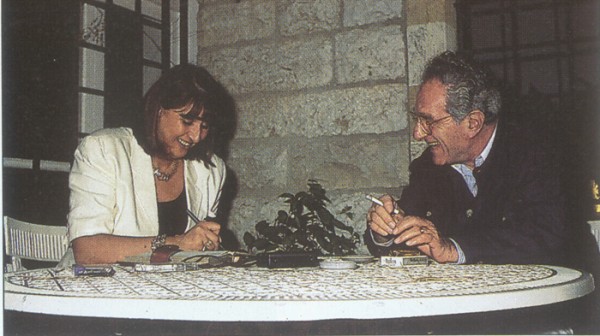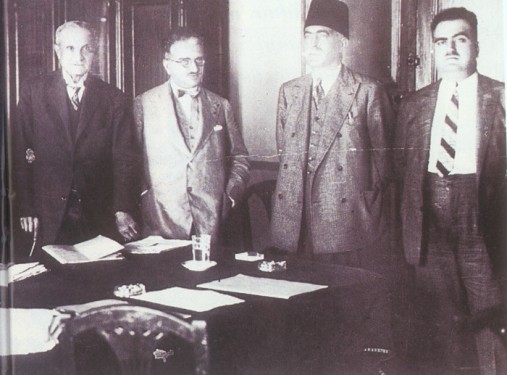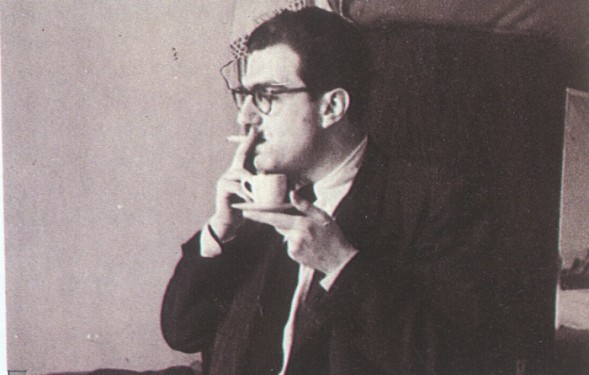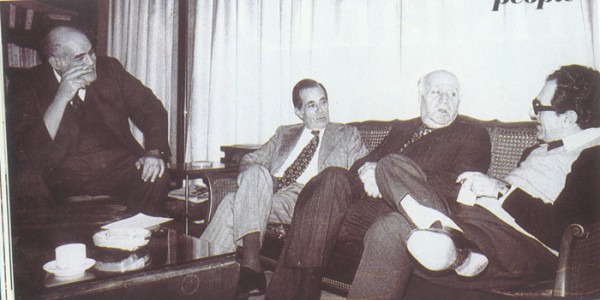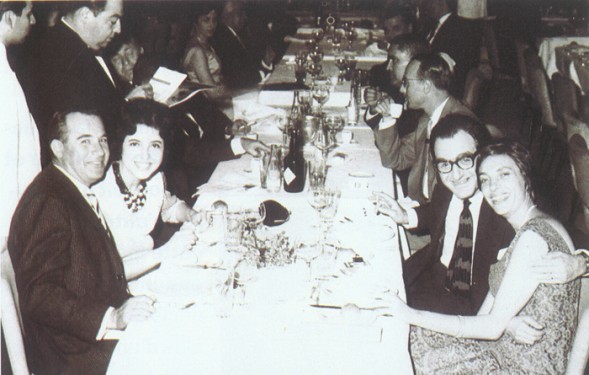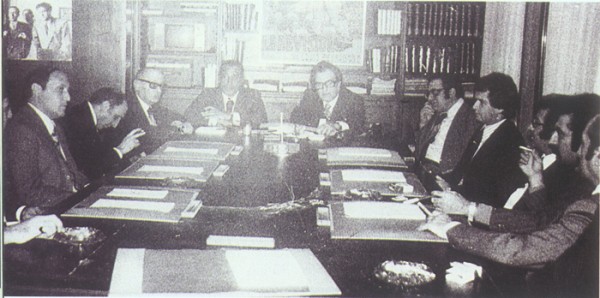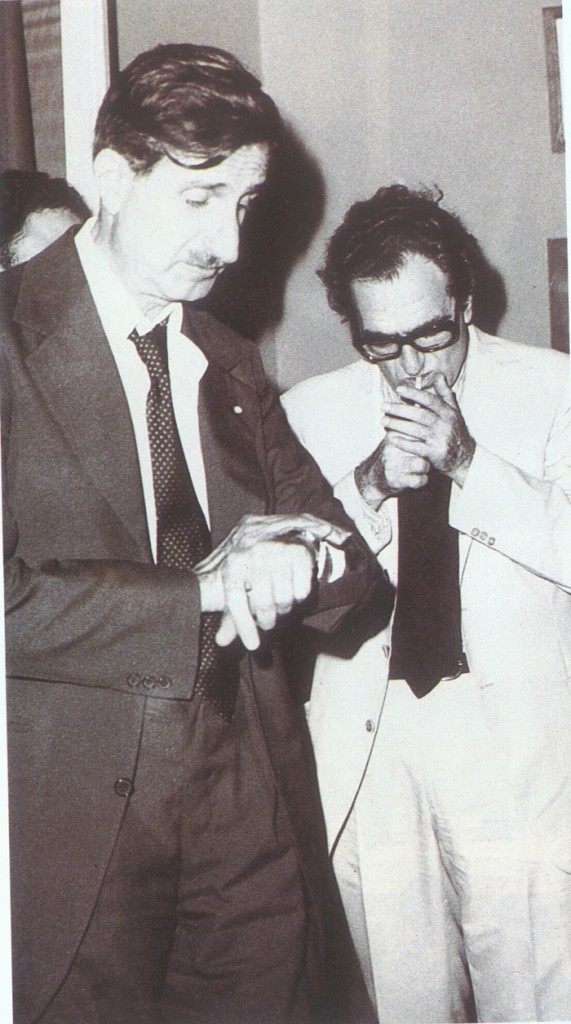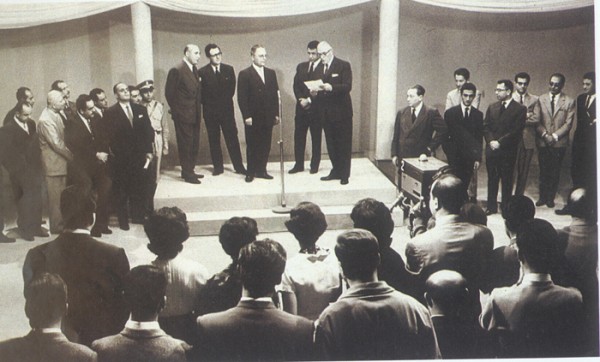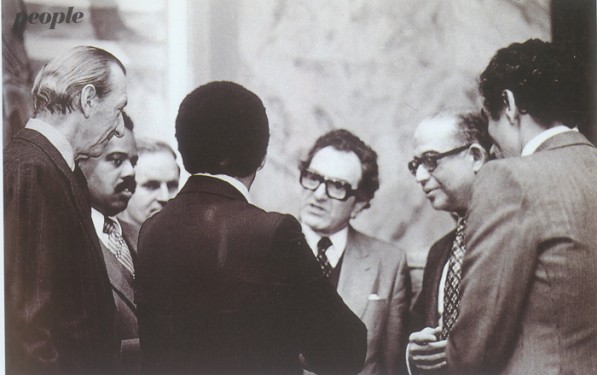Prestige Issue Nº 6 Nov. 1993
Ghassan Tueni
Is it possible to visit Ghassan Tuéni, without leaving with a book under your arm? His library is mostly impressive. Like his father who had to sell his obligations to the Misr Bank to enable him to continue his studies in the United States, Ghassan made the sacrifice of separating himself from precious manuscripts to send his son Makram to specialize in Harvard. Life was offered to GhassanTueni, in all its excesses, with its joys and bitterness. Spoiled by success, he remains marked by the loss, one after another, of his loved ones.
“I am a man who took his retirement from politics, without sacrificing a certain presence by writing … but with a great love: Balamand and its University. Depicting me, as some people do, as a ” monument ” is doing injustice to the history of my profession. It is also ignoring how rich was the latest history in a Lebanon that we want to quickly bury. We are a nation in which the trauma of war has created a phenomenon of artificial hatred for its history, of distrust for its legacy. However, we do not make a nation without history. We do not make a future without a past and we do not create a constitution, in the deepest sense of the term, unless it is rooted in the political traditions and aspirations of successive generations. History holds more the message of memory then the faces of those who are trying to delete it. On the other side of memory, there is death, but only assassins are afraid of it. Those who die, even murdered, many of my colleagues and my friends are gone and find themselves on the other side of memory superior to those who have remained. You should know already how to deal with death and live in its own memory to survive every day its own assassination and wait for it without fear, because without reproach. ”
© Bassam Lahoud
Ghassan Tuéni tells, Marcelle Nadim Takes notes
© Archives An Nahar
GebranTuéni, when he was Minister of Education, put in execution the decree signed by his predecessor Dr Spiridon Abourrousse stipulating the adoption of the Lebanese Baccalaureate as the culmination of years of high school.
© Archives Ghassan Tuéni
Editor at 21 years old, one of the most prolific writers, Ghassan Tuéni says: ” From Charles Malek, I acquired, in addition to philosophy, the genealogy of thought and dialectics. Antoun Saadeh taught me faith in doctrine and discipline. From my father , I learned all the other things. “
© Archives Dar Assayad
” There was friendship between journalists. They have always come together, respect each other, accept that we are different, that we can be in a violent polemic without insults. Criticism can be more efficient when it is accompanied, if not with courtesy, at least with some respect..You attack the act, not the person. “
© Archives An-Nahar
The beautiful era: at the time of the election of Miss Europe at Casino du Liban . Kamel Mroué, Nadia and GhassanTuéni and Salma Mroué .Kamel Mroué, father of the modern press, was the closest journalist to Gebran, then GhassanTuéni. Mroué refused to succumb to the trap set by the political for journalists, he reproached Ghassan on agreeing to be a journalist and a politician at a time. The difference between Mroué and Tueni was that the first had a passion for news and the second a passion for opinion.
© Archives Ghassan Tuéni
In 1958, on a visit to Lebanon, Mohammed Hassanein Heikal wanted to meet Ghassan Tuéni, the journalist who was opposed to Abdel Nasser. From their dinner together resulted a friendship despite differences of opinion. Back to Lebanon, he attended a meeting of the drafting at An-Nahar and could not believe that around the same table, were taken decisions to elect more than one Lebanese President in the presence of MPs and Ministers with the participation of journalists. The press being the artisan of power was something surprising for the egyptian press which itself became an expression of power.
© Archives An-Nahar
“During the events of 1958, I visited Kamal Jumblatt in his village Moukhtara. They thought, since I was late, that I was the bearer of an important political message that can solve the crisis; in fact, we were just talking philosophy. I was fan of Greek philosophy while he was a supporter of Hindu philosophy. “
© Archives An-Nahar
Minister of Information, GhassanTuéni innovated, in 1970, with the concept of television democracy: proceedings of the parliament were gone live on television, roundtables with student unions during the student crisis. It was the first time that young people had the opportunity to discuss with the Minister of their grievances.
© Ghassan Tuéni
direct witness page by page of the ” Lebanese age ” GhassanTuéni ambassador to the United Nations , is the sponsor of Resolution 425 , adopted in 1978 by the Security Council , stating the respect of the sovereignty of Lebanon and sending UN forces in southern Lebanon for peacekeeping .
CURRICULUM VITAE
GhassanTuéni: Born in 1926, MA Harvard 1947
– Married in 1954 to Nadia Hamadé Lebanese poet crowned by l’Académie française. Died in 1983.
– Father of three children: Nayla died at the age of 7 years, Gibran: Director of An-Nahar, Makram died in 1984.
– Member of Parliament for the Chouf area in 1951
– Member of Parliament for Beirut in 1953
– Vice Chairman of the Board 1954
– Vice Chairman and
Minister of Education and Information 1970
– Minister of Social Affairs 1975
– Ambassador of Lebanon to the United Nations from 1977 to 1982
– President of the University of Balamand 1990-1993
As an Editor of An-Nahar, he was, several times, prosecuted and imprisoned since 1949 until 1973 … a total of eight months in prison.


